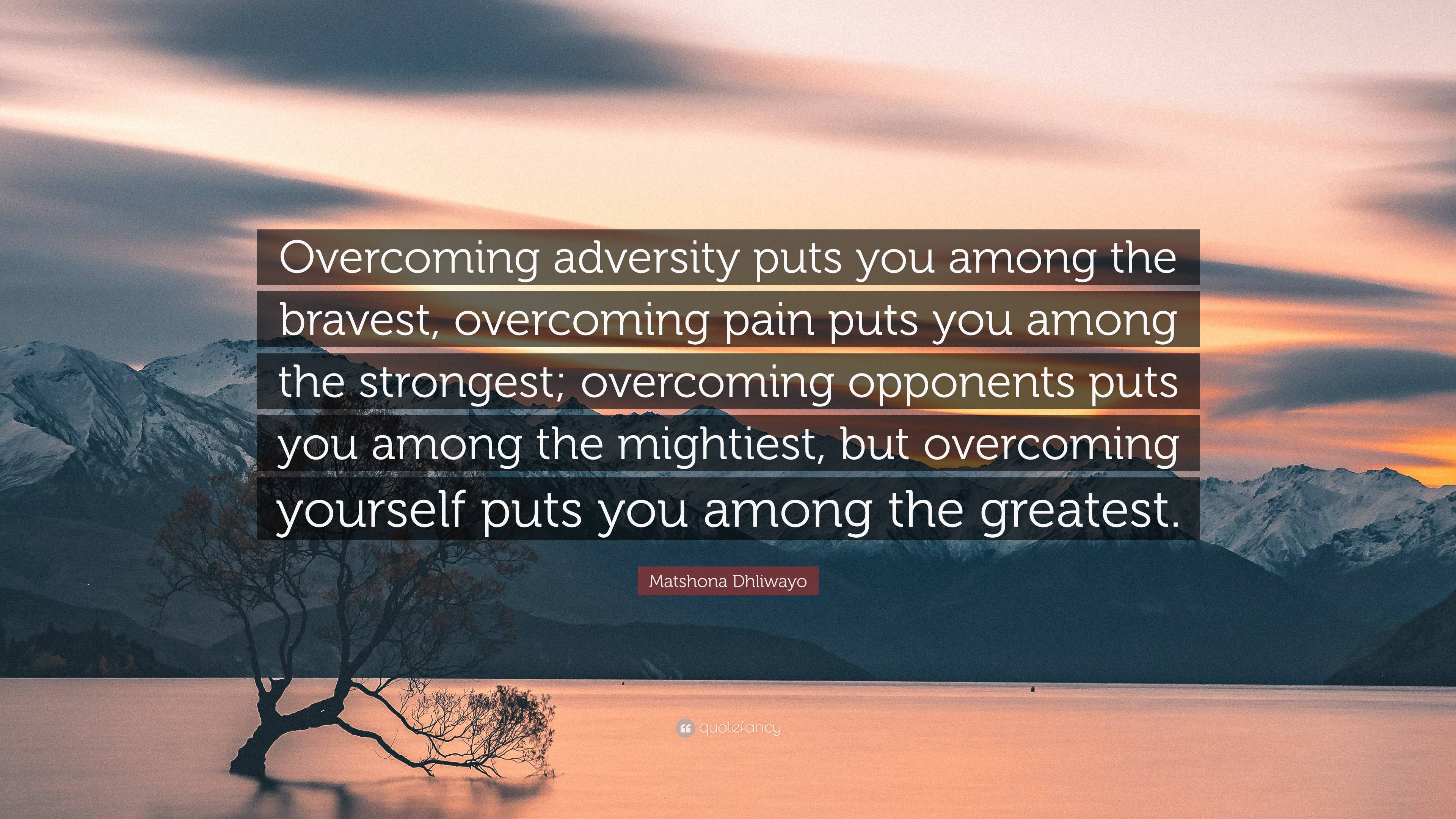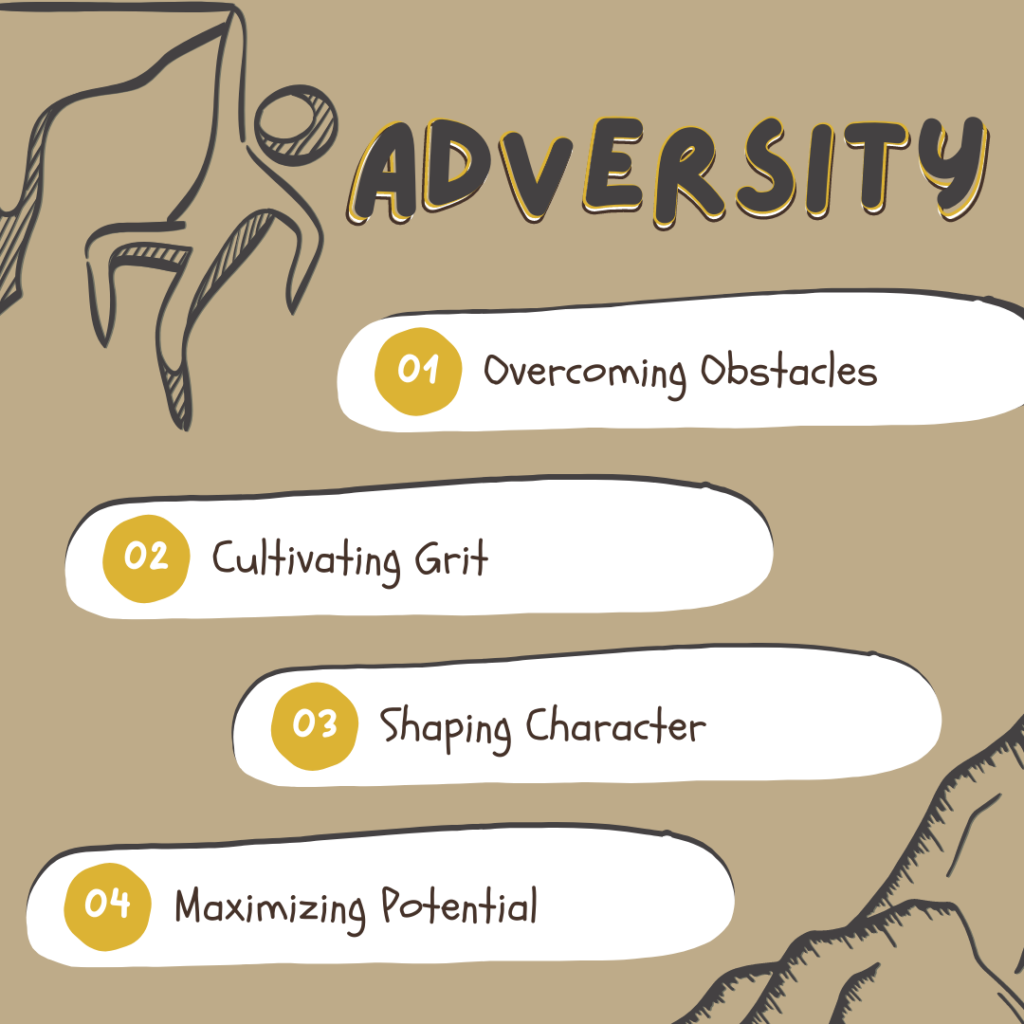What Does Overcoming Adversity Mean

Imagine a lone sapling, battered by relentless winds, its fragile branches swaying precariously. Yet, it holds firm, roots digging deeper into the earth, drawing strength from the very storms that threaten to uproot it. It seems to whisper a silent, powerful tale of resilience and unwavering spirit.
At its core, overcoming adversity is about more than simply surviving hardship. It's about transforming challenges into catalysts for growth, using setbacks as stepping stones, and emerging stronger, wiser, and more compassionate on the other side.
The Essence of Resilience
Adversity takes many forms: a personal loss, a professional setback, a health crisis, or even a societal injustice. What defines the experience is the feeling of being overwhelmed, challenged beyond what feels manageable.
According to the American Psychological Association, resilience isn't a trait that people either have or do not have. It involves behaviors, thoughts, and actions that can be learned and developed in anyone.
Building a Foundation
The seeds of resilience are often sown in early life. A supportive family environment, while not always perfect, can provide a crucial buffer against life's inevitable difficulties.
However, the absence of such support doesn't preclude the development of resilience later in life. Many individuals discover their inner strength through facing their trials head-on, learning from their mistakes, and actively seeking positive relationships.
"The oak fought the wind and was broken, the willow bent when it must and survived." - Robert Jordan
Strategies for Navigating Challenges
Cultivating self-awareness is paramount. Understanding your emotional triggers and typical responses to stress allows for a more proactive approach to managing difficult situations.
Building a strong social support network is equally crucial. Talking to trusted friends, family members, or a therapist can provide a sense of belonging and offer fresh perspectives.
Furthermore, focusing on self-care practices such as exercise, mindfulness, and creative expression can help to replenish emotional reserves. Remember the words of Viktor Frankl, who in the face of unimaginable adversity in concentration camps, discovered meaning and purpose.
The Ripple Effect of Overcoming
The benefits of overcoming adversity extend far beyond personal growth. Individuals who have weathered storms often possess a unique capacity for empathy and compassion.
Their experiences can inspire others facing similar challenges, fostering a sense of hope and collective strength. They understand the vulnerabilities and resilience of the human spirit.
Research suggests that those who have overcome significant obstacles are more likely to become advocates for positive change within their communities, using their platforms to address systemic issues and create a more equitable world.
Examples of Resilience in Action
Consider Malala Yousafzai, who faced violent opposition for advocating for girls' education, but emerged as a global icon for youth empowerment. Or Nelson Mandela, who spent 27 years in prison for fighting against apartheid, yet emerged to lead South Africa towards reconciliation and equality.
These are but two of many examples, proving time and time again the potential in every single human being to conquer, and to thrive.
A Continuous Journey
Overcoming adversity is not a one-time event, but rather an ongoing process of learning, adapting, and growing. There will be moments of doubt, despair, and fatigue along the way.
What matters most is the unwavering commitment to moving forward, even when the path ahead seems unclear. It's about embracing vulnerability, celebrating small victories, and remembering that you are stronger than you think.
It is about emerging from the darkness, not unscathed, but forever changed, forever powerful. For you are, indeed, the sapling that weathered the storm, now standing tall and rooted deeply, ready to provide shelter and inspiration to others.





-1.png)












